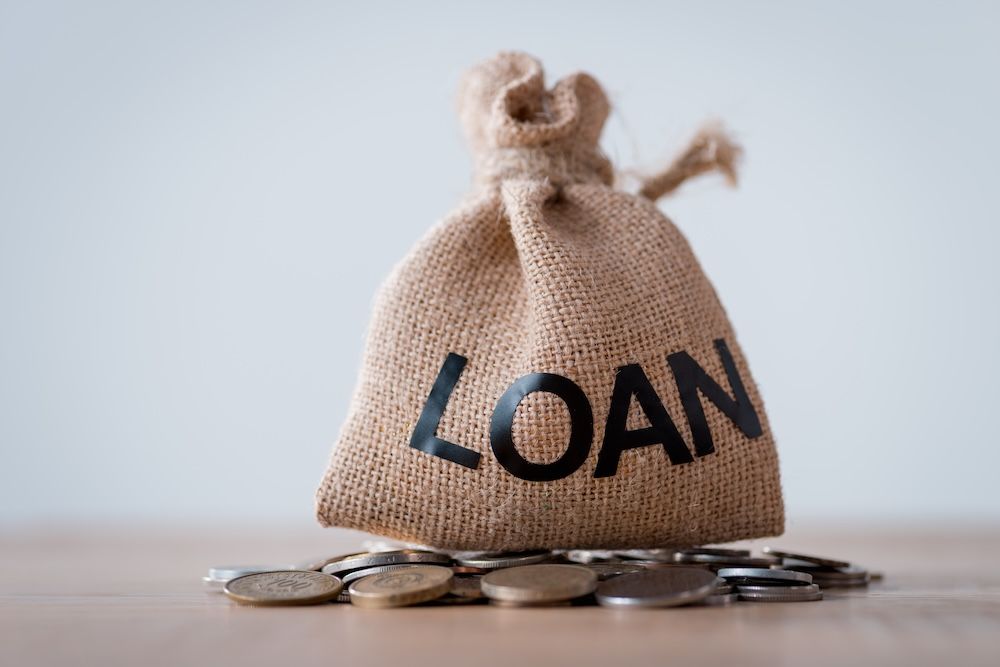How to use Installment Loans to plan your long-term financial goals
Wiki Article
A Comprehensive Guide to Home Loans: Solutions and Options Explained
Charting the world of home fundings can be complex. Different options exist, each with unique features and implications for potential house owners. Comprehending the distinctions in between government-backed and traditional financings is vital. In addition, the application process entails precise documents and pre-approval actions that several overlook. As consumers start on their home-buying journey, understanding how to take care of these responsibilities properly might mean the distinction in between economic stability and hardship. What methods can equip them on this path?Comprehending Home Loans: Types and Terms
Understanding the different sorts of mortgage and their connected terms is essential for possible homeowners, as it furnishes them with the expertise required to make educated monetary choices. Home financings can be extensively classified right into fixed-rate and adjustable-rate mortgages. Fixed-rate home loans keep a consistent rates of interest over the life of the financing, supplying stability in monthly repayments. On the other hand, variable-rate mortgages include rates of interest that may rise and fall after a preliminary set period, potentially resulting in lower first settlements but boosted future costs.Extra terms is essential for quality. Principal describes the car loan amount borrowed, while passion is the cost of loaning that amount. The term of the lending shows its period, usually varying from 15 to 30 years. Comprehending these fundamental principles makes it possible for potential purchasers to navigate the complex landscape of home funding, ensuring they pick the right car loan choice that aligns with their financial circumstance and long-term objectives.
Traditional Fundings vs. Government-Backed Loans
A substantial difference in home funding exists in between government-backed loans and traditional finances, each satisfying various borrower needs and scenarios. Conventional lendings are not guaranteed or ensured by the federal government and normally require higher debt scores and down payments. They are usually appealing to borrowers with steady financial backgrounds, as they may provide competitive rate of interest and terms.In comparison, government-backed car loans, such as FHA, VA, and USDA car loans, are designed to aid certain groups of debtors, including novice homebuyers and professionals. These car loans normally include reduced deposit demands and even more flexible credit history criteria, making them easily accessible to a more comprehensive array of people.
Eventually, the selection between conventional and government-backed fundings hinges on the customer's monetary scenario, lasting objectives, and qualification, making it necessary to thoroughly evaluate both alternatives prior to making a choice.
The Function of Rates Of Interest in Home Funding
Rates of interest play an essential function in home funding, affecting consumers' decisions between variable and set rate finances. The option between these alternatives can considerably influence regular monthly settlements, affecting general price. Understanding how rate of interest rates operate is essential for any person navigating via the home finance procedure.Dealt With vs. Variable Prices
Buyers deal with a necessary choice when selecting in between fixed and variable prices, as this option considerably affects the price of funding over time. Fixed-rate home loans provide security, securing in a rate of interest for the life of the loan, which can be advantageous in a rising rate of interest atmosphere. This predictability allows homeowners to spending plan a lot more properly. Alternatively, variable-rate home loans, or variable-rate mortgages (ARMs), commonly begin with lower first prices that can vary based on market problems. While this might bring about lower first repayments, consumers encounter the risk of raised rates in the future. Eventually, the choice between fixed and variable rates relies on private financial scenarios, threat tolerance, and assumptions regarding future interest price fads.Influence On Month-to-month Repayments
When evaluating home funding choices, the impact of rates of interest on regular monthly payments is a crucial aspect to ponder. Rate of interest directly affect the total expense of borrowing, affecting just how a lot a debtor will certainly pay monthly. A lower rate of interest price outcomes in smaller regular monthly repayments, making homeownership much more budget friendly. Alternatively, greater rates can considerably boost regular monthly responsibilities, possibly straining a homeowner's spending plan. Additionally, the funding term plays an essential role; longer terms might spread out settlements out yet can result in paying more rate of interest over time - Installment Loans. Understanding how rates of interest engage with funding amounts and terms is necessary for customers to make educated economic decisions and pick a home loan that straightens with their lasting financial goalsHome Mortgage Brokers vs. Direct Lenders: Which Is Right for You?
When considering a home mortgage, prospective borrowers must comprehend the distinctive duties and responsibilities of home mortgage brokers and straight lending institutions. Each alternative offers its own advantages and negative aspects, which can substantially influence the total cost of funding. An educated option calls for cautious analysis of these factors to find out this here determine the most effective suitable for private demands.Roles and Duties Defined
Navigating the complexities of home funding calls for a clear understanding of the roles and responsibilities of home mortgage brokers and straight loan providers. Cash Advance. Home mortgage brokers serve as intermediaries, attaching debtors with loan providers. They examine a consumer's economic situation, curate finance choices, and guide customers with the application procedure, frequently leveraging multiple lending institution partnerships to protect beneficial terms. On the other hand, direct lenders, such as banks and debt unions, provide financings directly to consumers. They deal with the whole loan procedure, from application to funding, with a concentrate on their very own items. Each option provides unique avenues for acquiring funding, making it essential for customers to assess their preferences and needs when making a decision in between involving a home loan broker or functioning with a direct lenderCons and pros Contrast
Choosing in between a mortgage broker and a straight lending institution can greatly impact the home funding experience, as each alternative uses distinct benefits and downsides. Home mortgage brokers offer as intermediaries, offering accessibility to numerous lending institutions and potentially much better prices, while simplifying the finance process. They may bill costs and rely on compensation structures that might affect their suggestions. On the various other hand, direct lending institutions enhance the process by supplying in-house financings, which can result in faster approvals and fewer issues. Conversely, they may have a limited selection of items and much less versatility regarding pricing. Ultimately, the choice pivots on private preferences, financial situations, and the preferred degree of support throughout the mortgage journey.Cost Effects Examined
While reviewing the price ramifications of home loan brokers versus straight loan providers, prospective homeowners must think about various variables that can greatly impact their total expenses. Mortgage brokers commonly charge fees for their services, which can differ substantially, affecting the overall financing cost. Nevertheless, they often have access to a larger array of lending products and affordable rates, potentially saving customers money over time. Conversely, direct loan providers might use a much more simple process with perhaps lower upfront costs, yet their car loan options might be limited. It is necessary for homeowners to compare interest prices, charges, and terms from both brokers and loan providers, ensuring they make an enlightened choice that straightens with their economic goals and requirements.The Home Mortgage Application Refine: What to Expect
The mortgage application process can typically feel intimidating for numerous applicants. It normally begins with collecting necessary paperwork, consisting of evidence of income, credit history, and personal identification. Lenders use this information to examine the candidate's economic security and figure out funding eligibility.Next, candidates submit an official application, which might include filling in on-line kinds or giving details in person. During this phase, loan providers examine various variables, such as debt-to-income ratio and credit rating, to pick finance terms.
When pre-approved, the loan provider will certainly perform a complete appraisal of the residential property to determine its worth straightens with the funding quantity. This phase may additionally include extra history checks.
After final authorizations and conditions are met, the financing is processed, bring about the closing stage. Understanding each action equips applicants, making the trip smoother and much more workable as they move towards homeownership.
Tips for Managing Your Home Mortgage Responsibly
Successfully steering the mortgage application procedure is simply the beginning of a liable monetary trip. Handling a mortgage needs attention to a number of key techniques. Consumers ought to develop a clear spending plan that accommodates monthly mortgage settlements, property tax obligations, and insurance policy. Regularly examining this budget plan assists prevent overspending and guarantees timely payments.
In addition, making extra repayments when possible can substantially reduce the loan principal and total interest paid in time. Borrowers need to also preserve open lines of communication with their lending institution, specifically in times of economic trouble - Installment Loans. This can cause prospective services such as car loan adjustments or refinancing choices
It is advisable to keep an eye Get More Info on credit scores consistently. A important source good credit rating can provide chances for far better car loan terms in the future. By adhering to these pointers, homeowners can browse their loan obligations properly, assuring long-term financial health and security.
Often Asked Concerns
What Are Closing Prices and Exactly How Are They Calculated?
Closing costs include charges connected with finalizing a home mortgage, including evaluation, title insurance, and lending origination charges. These prices commonly range from 2% to 5% of the funding quantity, varying based on location and loan provider.
Can I Get a Home Mortgage With Bad Credit History?
Yes, people with poor debt can get a mortgage, though options may be limited. Lenders often call for higher deposits or passion prices, and checking out government-backed car loans might boost possibilities of authorization.
What Is Home mortgage Insurance and When Is It Needed?
Mortgage insurance coverage protects loan providers against default and is usually required when a debtor makes a deposit of less than 20%. It guarantees that lending institutions recoup losses if the borrower stops working to settle the lending.How Does Refinancing Work and When Should I Consider It?
Refinancing includes replacing a current home loan with a new one, generally to safeguard a reduced rates of interest or adjustment loan terms. House owners need to take into consideration re-financing when rates of interest go down substantially or their financial circumstance improves.What Takes place if I Miss a Mortgage Settlement?
If a home mortgage repayment is missed, the lending institution typically assesses late charges, reports the delinquency to credit report bureaus, and might launch repossession process if settlements remain to be neglected, at some point threatening the house owner's home.Fixed-rate home loans preserve a regular rate of interest rate over the life of the financing, offering stability in monthly settlements. A substantial difference in home funding exists between conventional loans and government-backed finances, each catering to different customer requirements and situations. In comparison, government-backed lendings, such as FHA, VA, and USDA fundings, are created to aid details groups of borrowers, consisting of first-time buyers and professionals. Interest rates play a crucial role in home financing, affecting borrowers' choices in between variable and fixed rate finances. Fixed-rate mortgages use security, securing in an interest price for the life of the car loan, which can be helpful in an increasing interest rate atmosphere.
Report this wiki page